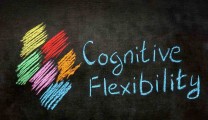In today’s work environment, change is no longer occasional — it is constant. Managers who rely on rigid thinking soon find themselves overwhelmed, unable to adapt, and disconnected from their teams. This is where Cognitive Flexibility becomes a defining managerial skill.
What Is Cognitive Flexibility in Management?
Cognitive flexibility is a manager’s ability to shift thinking patterns, view situations from multiple perspectives, and adjust strategies quickly when circumstances change. It is more than being open-minded — it requires intentional mental agility to:
-
Abandon outdated assumptions
-
Explore alternative viewpoints
-
Reconsider decisions as new information emerges
-
Move fluidly between different work contexts and leadership approaches

Why Managers Need Cognitive Flexibility Now More Than Ever
Modern teams operate in evolving business landscapes: new technologies, changing employee motivations, hybrid work, and unpredictable market conditions. Managers who lack cognitive flexibility tend to:
-
Cling to past methods that no longer work
-
Struggle with innovation
-
Resist new ideas from the team
-
Slow down organizational progress
In contrast, flexible managers navigate complexity with ease because they continually update their thinking and encourage a culture of adaptable growth.
Core Behaviours of Managers with High Cognitive Flexibility
Managers who master this skill demonstrate certain behavioural patterns:
They ask exploratory questions rather than seeking immediate answers.
They switch between leadership styles depending on team maturity, project urgency, or emotional climate.
They process feedback constructively, not defensively.
They adjust plans without losing vision, separating long-term goals from short-term methods.
How Managers Can Strengthen Cognitive Flexibility
Developing this skill requires consistent mental training:
-
Practice assumption-checking: Regularly challenge personal beliefs and traditional processes.
-
Engage with diverse thinking sources: Learn from fields outside your own industry to expand perspective.
-
Rotate your decision-making lens: View challenges from the angles of customers, employees, data, and competitors.
-
Create reflection space: Evaluate how you reacted to past changes and how you could have adapted better.

Impact on Team and Organization
A cognitively flexible manager leads a team that:
-
Handles transitions with confidence
-
Suggests innovative solutions
-
Learns rapidly from experimentation
-
Responds to change proactively rather than reactively
This contributes to a workplace culture where adaptation is natural, not forced.
Conclusion
Cognitive flexibility is no longer a “soft” skill — it is a strategic leadership capability. As work environments continue to evolve, managers who can adjust their mindset, reconsider strategies, and navigate change thoughtfully will guide their teams to sustainable success.











Replies to This Discussion